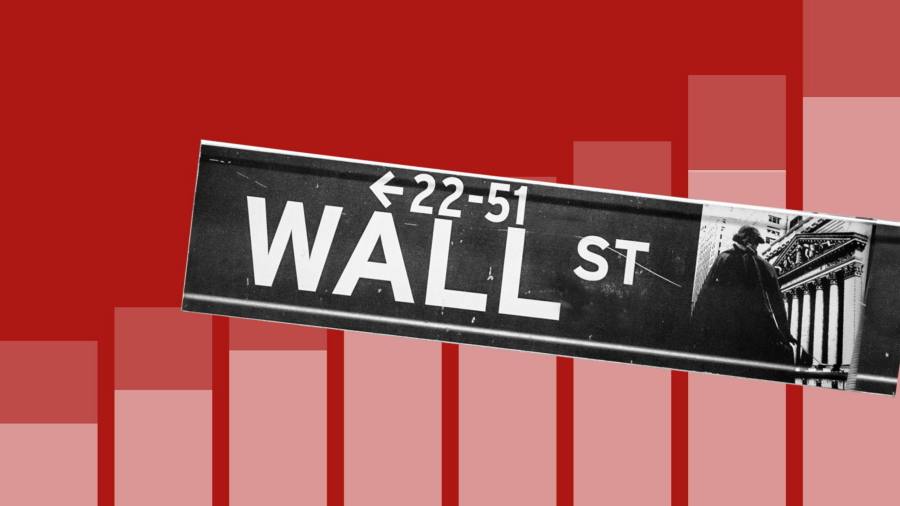US stock markets seesawed on Monday as investors continued to digest first-quarter earnings from some of the world’s biggest companies and eyed looming updates from Microsoft and Google parent Alphabet, among others.
Wall Street’s benchmark S&P 500 closed 0.1 per cent higher while the tech-heavy Nasdaq Composite ended 0.3 per cent lower.
Morgan Stanley’s US equities team noted that stocks were generally performing well going into the current earnings season, putting them at risk if investors start focusing on the increasingly cautious outlook from executives.
“For our more tactically oriented clients, we think this dynamic poses a near-term risk for stock prices given our more pessimistic outlook for earnings this year, especially as the liquidity picture becomes less accommodative,” they wrote in a note to clients.
Shares in Coca-Cola slipped 0.2 per cent after the drinks group reported net revenue growth of 5 per cent in the first quarter.
The latest earnings from Microsoft, Alphabet and Amazon this week are likely to be the focus of investors’ attention. Big Tech has held up well even as US interest rates have continued to climb — a factor that has propped up the wider market. Microsoft is up 18 per cent year-to-date, while Amazon has gained 29 per cent. The S&P 500 has added just over 7 per cent so far.
Bed Bath & Beyond slumped 39 per cent to 18 cents a share after the home goods group filed for Chapter 11 bankruptcy protection on Sunday.
US government debt edged higher on Monday, pushing the yield on interest rate-sensitive two-year Treasuries down 0.04 percentage points to 4.14 per cent and the yield on the benchmark 10-year note 0.06 percentage points lower to 3.51 per cent.
Strategists at BMO noted that volumes were just over half of recent averages. Moves are likely to remain muted ahead of first-quarter gross domestic product figures due on Thursday and closely watched inflation data on Friday.
The Federal Reserve meets next week to decide interest rates. While a quarter-point rise is largely priced in, investors are looking beyond that to the potential for rate cuts later in the year.
An index measuring the dollar’s strength against a basket of six major currencies fell 0.3 per cent.
China-related bourses started the week on the back foot, with Hong Kong’s Hang Seng index down 0.6 per cent and the Hang Seng Tech index giving up 0.2 per cent, although it had traded as much as 1.1 per cent lower earlier in the session.
A report from Bloomberg last week suggested US president Joe Biden was poised to further restrict American companies’ ability to invest in critical parts of China’s economy — a move that would once more raise concerns about the effect of ongoing geopolitical tensions between the two countries.
China’s CSI 300 fell 1.2 per cent, dragged lower by basic materials, property and consumer non-cyclicals.
Europe’s region-wide Stoxx 600 and London’s FTSE 100 both fell less than 0.1 per cent. The moves came as Credit Suisse announced it suffered SFr61.2bn ($68.6bn) of asset outflows in the first quarter. Shares in UBS, which agreed to take over Credit Suisse last month, rose 0.8 per cent.
Credit: Source link




![Workplace Loneliness Isn’t Getting Better [New Data] Workplace Loneliness Isn’t Getting Better [New Data]](https://www.hubspot.com/hubfs/workplace-loneliness-1-20241105-880851.webp)






